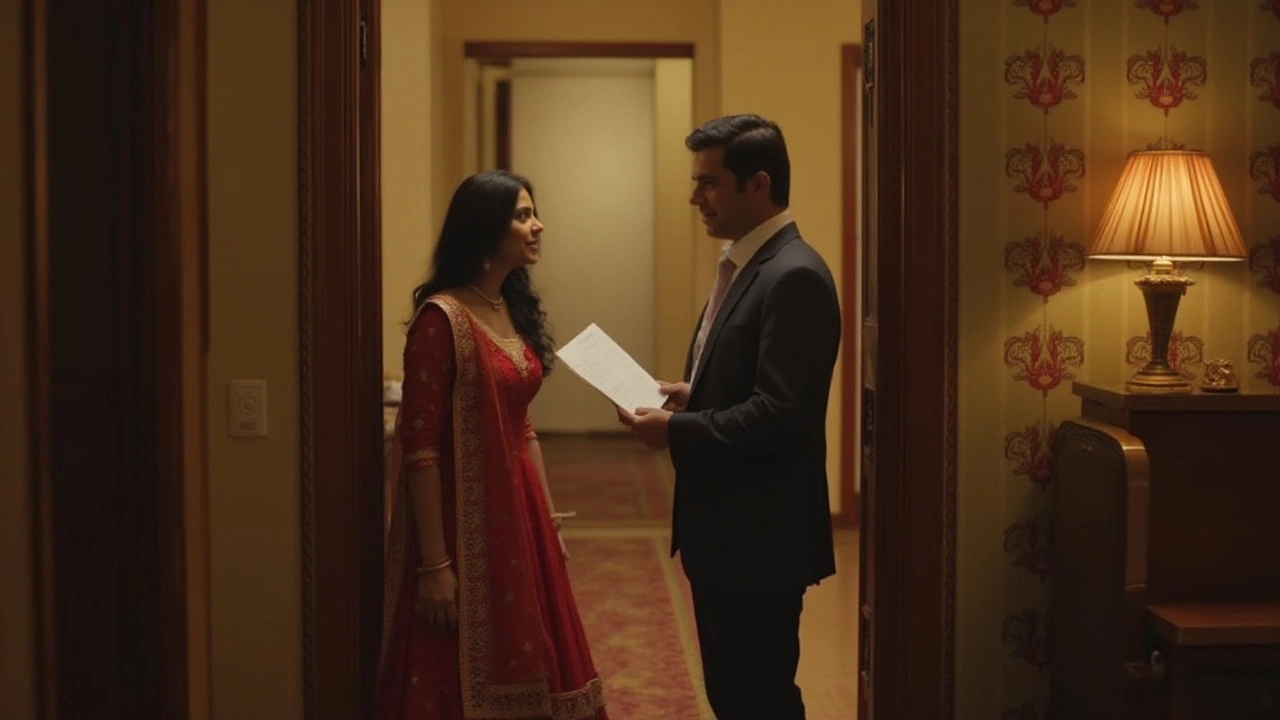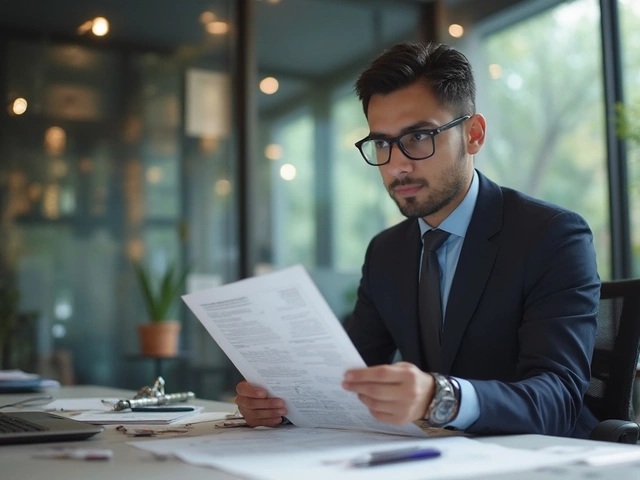In Virginia, the question of whether a husband can kick his wife out of a home involves delving into the intricate details of property and marital laws. The complexities increase when the property is solely in one spouse's name. It is not uncommon for spouses to wonder about their legal standing in these situations, especially if the relationship becomes tense.
Understanding marital property rights can greatly impact how these scenarios unfold. Virginia law looks at several factors, including both the ownership of the property and the rights afforded to each spouse under marriage.
Throughout this article, we'll explore the various elements that could affect a spouse's right to remain in the family home. We'll also discuss the legal protections in place and what steps to take if one finds themselves facing potential eviction from their dwelling.
- Understanding Marital Property in Virginia
- Legal Rights of Spouses in Virginia
- Can a Husband Evict His Wife?
- Legal Protections for Spouses
- Steps to Take if Facing Eviction
- Seeking Legal Assistance
Understanding Marital Property in Virginia
When it comes to marital property in Virginia, the laws can be a perplexing web of guidelines and statutes, especially when untangling who owns what. In Virginia, distinguishing between marital and separate property is key. Marital property refers to assets and debts acquired during the marriage, regardless of which spouse holds the title. This means that even if a home is solely in the husband's name, it may still be considered marital property. On the other hand, separate property includes assets owned by one spouse prior to the marriage or acquired by gift or inheritance, which usually remains with that individual.
The concept of equitable distribution plays a crucial role in Virginia. Unlike community property states, where assets are divided equally, Virginia operates on the principle of equitable distribution. This doesn't always mean equal but fair division, taking into account contributions to the marriage by each spouse, duration of the marriage, and each spouse’s financial situation. A pivotal point about this distribution is its reliance on various factors that underscore fairness over a straightforward 50/50 split.
Interestingly, Virginia courts often dive deep into each case’s specifics, making rulings that take various circumstances into account. The court looks at how each spouse contributed not just financially, but also non-monetarily—raising children, maintaining the home, and career sacrifices. According to a statement from the Virginia State Bar, "The division of marital wealth is decided on a case-by-case basis that addresses the unique dynamics present in each marriage."
It's important to note that the property division in Virginia doesn’t always mean one spouse must move out or give up their rights to the home immediately. In many cases, couples might come to a mutual agreement, or the court might rule in a way that provides time for the transition. For example, if children are involved, maintaining their stable environment could influence the decision about who stays in the marital home. Additionally, legal instruments like prenuptial agreements can influence how marital property is addressed, showcasing the importance of foresight in marital matters.
Disputes often arise over significant marital assets, primarily real estate, as it embodies both financial value and sentimental worth. It is crucial to comprehend that situations around marital homes can vary widely, requiring specific considerations under Virginia law that underscore these nuances. Understanding these facets is not just about legal obligations but navigating one’s rights amidst personal and financial complexity. As spouses find clarity in these aspects, they can perhaps mitigate conflicts and reach resolutions that are less acrimonious and more amicable.
Legal Rights of Spouses in Virginia
The legal landscape regarding the rights of spouses in Virginia is both fascinating and crucial to understand, especially when it comes to property concerns. In Virginia, the rules governing marital rights lean on the principles of 'equitable distribution' during a divorce. This doesn't necessarily imply an even split but rather a fair division based on several factors. For marital property, things can become tangled when distinguishing between 'marital' and 'separate' property. It is vital to know that separate property, which often includes assets acquired before the marriage or through inheritance and gifts, remains with the original owner unless commingled.
The crux of spousal rights often manifests when facing disputes over living arrangements, typically rooted in the boundaries of what one spouse can demand of another within marital means. When the home is registered under one spouse's name, the ownership of the house doesn't necessarily provide unilateral power to evict the other. Virginia courts prioritize both spouses' interests to maintain fairness and ensure neither party is unjustly treated. In a contentious scenario where eviction concerns arise, Virginia law provides protective measures, recognizing the non-owner spouse's potential rights to remain, barring any compelling legal reason strong enough to override this principle.
At times, people may glean a clearer understanding by hearing the insights of legal experts. As one seasoned family lawyer in Virginia advises,
"The key to understanding marital rights in Virginia often lies in comprehending the distinction between what each party brings into the marriage and how it evolves collectively. Being informed can prevent unnecessary strife and uphold justice in marital homes."Such wisdom underscores the importance of appreciating the nuances of the law, where each spouse's contribution and situation's context are pillars of equitable decisions.
When looking at the larger picture, it's worth noting that Virginia places particular emphasis on family welfare, including children, when evaluating disputes over property and residency. The stability and security of the family unit serve as a guiding tenet, which means that any attempts at eviction must align with legal provisions that ensure a baseline of fairness. Understanding the depth of these laws reveals the balancing act between individual ownership rights and collective familial welfare, a hallmark of Virginia's legal framework. This highlights that anyone navigating these waters should arm themselves with knowledge and seek professional guidance when necessary.
Can a Husband Evict His Wife?
When you dig into the laws surrounding eviction within a marriage, especially in a place like Virginia, you'll find it's not as straightforward as it might seem. Even if a home is in one spouse's name, the legal system provides layers of protection for the other spouse. Specifically, in the state of Virginia, marriage introduces certain legal rights about residing in a shared home. The idea that a husband can simply put his wife out on the street is more myth than reality. The weight of legal and ethical considerations ensures this process isn't something that can happen overnight or on a whim. Virginia courts are particularly cautious in matters concerning the eviction of spouses, emphasizing fairness and justice.
It's key to understand that even if a husband is the sole owner of the home, through the purchase that may have occurred prior to the marriage, the wife often gains certain rights to that property simply by virtue of marriage. Many individuals aren't aware that marriage can alter property rights significantly. Here’s where things can get complex: one critical aspect is what's referred to as 'marital property' versus 'separate property.' Although a husband may technically own the home, under Virginia law, it could still be considered marital property if it was used by both parties during their marriage.
Certain legal processes must be adhered to before any eviction can take place. Virginia has established clear guidelines to protect spouses from being unjustly removed from their homes. It's not just about who holds the deed; Virginia family law acknowledges the contribution of both spouses—whether financial or otherwise—toward maintaining the home. Thus, the law assumes a shared right to housing. A significant factor is the consideration of contributions made by the non-owning spouse during the marriage, which may bolster her position in the event of a dispute over housing rights.
"Marriage creates a joint financial relationship, and with it, rights to shared resources," says legal expert John Smith from the Virginia Family Law Institute.
Moreover, there are specific legal protections under the equitable distribution laws in the state. In case of separation or divorce, the courts aim to distribute property as equitably as possible, a principle that often extends to eviction proceedings. For example, if a wife faces the threat of eviction, she can seek a court order that grants her permission to remain in the home temporarily—known as 'pendente lite' rights. This legal measure ensures that sudden homelessness or upheaval doesn't result from marital conflict. Realistic solutions often allow both parties to maintain stability as they sort through their marital issues.
Furthermore, legal jurisdictions in Virginia often encourage mediated solutions that prevent families from being pushed to the brink with abrupt, unilateral actions. The onus typically falls on couples to seek structured legal counsel where factors such as financial contributions, childcare responsibilities, and even emotional well-being are taken into account. More often than not, collaborative and mediated agreements are encouraged, which address housing and other critical issues without resorting to enforced eviction. That said, legal battles are invariably complex affairs, and professional counsel is essential.

Legal Protections for Spouses
When navigating the choppy waters of marital separation, understanding the legal protections available to spouses is crucial. In Virginia, the law provides significant yet nuanced protection to ensure that the rights of both parties are respected during this challenging time. One question often asked is whether a husband can evict a wife from a home he owns. It's essential to understand that Virginia courts recognize the importance of a fair process that balances property rights with marital obligations.
The Virginia Code offers specific provisions designed to protect spouses in possession of marital property. Even if a home is legally under one spouse's name, the other spouse might have legal grounds to stay in the residence, especially if it's considered marital property. Judges tend to look at multiple factors, including the well-being and welfare of any children, before making any final decisions about housing. A notable aspect is the requirement for a formal eviction process, emphasizing the necessity of legitimate legal proceedings before anyone is removed from the property.
According to the Virginia State Bar, "The individual circumstances and nuances of property and marriage laws often require careful consideration and legal guidance for a just resolution."
It's also worth noting that protective orders can play a significant role in ensuring a spouse's security and continued residence in the home. These orders, if necessary, serve to prevent a spouse from being forced out without due process, and violations of such orders come with severe legal repercussions. Spouses also need to be aware that temporary arrangements made during the separation process, such as one spouse leaving for a short while, don't automatically relinquish their rights to the property.
While the legal jargon might be dizzying, the underlying principle seeks a balanced approach, ensuring no party's rights are disregarded. This can reduce tensions and create an environment where both parties can find amicable solutions. However, understanding the full capacity of these protections often requires the guidance of experienced legal professionals who can navigate the specifics of Virginia's marital laws effectively. For many spouses facing eviction concerns, knowledge is power, often translating into more favorable outcomes in the courtrooms and beyond.
For a clearer understanding of the situation, reaching out to a legal expert specializing in Virginia family law can provide personalized insights and advise on strategic decisions. They can help clarify any misunderstandings about ownership and possession while representing one's interests in various legal settings. To address any ongoing disputes, many will find it beneficial to open discussions with legal advisors early on, potentially preventing unwanted consequences before they escalate further.
Steps to Take if Facing Eviction
Facing the prospect of eviction, particularly from a home you have lived in for years, can be an overwhelming experience. However, it is critical to approach the situation strategically. First and foremost, familiarize yourself with your rights under Virginia’s marital property laws. Understand that even if your name isn’t on the deed, the property might still be considered marital property, which could have implications in the Court. Start by gathering all relevant documents, such as marriage certificates, property deeds, and any financial records, which can help establish the nature of the property and any contributions you have made.
Seeking legal advice early in the process is a prudent move. A qualified attorney can help clarify your rights and responsibilities and recommend the best path forward. Many attorneys offer initial consultations where they can explain potential outcomes based on your specific circumstances. If you are unable to afford a private attorney, consider reaching out to legal aid organizations in Virginia, which often provide assistance to individuals facing housing instability. These entities can also inform you about available mediation services, which might be beneficial in resolving disputes amicably.
The Virginia State Bar highlights, "It is vital that individuals facing eviction consult with legal counsel to understand both their rights and obligations under the law.”
Communication with your spouse is another key aspect. While emotions may be running high, discussions about the practical aspects of the living arrangement can sometimes yield mutually acceptable solutions. Establishing a dialogue may prevent unnecessary legal battles and provide a platform for compromise. Be sure to document these communications, including dates and details of any agreements or disagreements, as they might be pertinent in future legal proceedings.
Next, consider alternative living arrangements. Although staying in the marital home might be preferable, having a backup plan can ease stress and may even prove advantageous in Court. Take time to research local housing options, including short-term rentals and staying with family or friends. Knowing you have a safe place to go can reduce anxiety, making it easier to handle the situation rationally.
Lastly, stay informed about current laws and regulations governing eviction in Virginia, as these can change. Keeping up-to-date with legislative updates ensures that you are never caught off guard by new requirements that could impact your case. Many government and non-profit websites offer newsletters or social media updates, which can be valuable resources. Remember, knowledge is power, and being well-versed in the law strengthens your position, whether in negotiation or in the courtroom.
Seeking Legal Assistance
In the challenging circumstance where the question of eviction by a husband from a home surfaces, especially within the jurisdiction of Virginia, understanding the intricacies of the law often necessitates professional guidance. The laws are designed with specific nuances that take into account the nature of marriage and home ownership, and navigating this terrain without aid can be daunting and potentially detrimental. This section provides crucial insights into why and how to seek legal assistance in such scenarios.
The first step in securing legal help involves finding an experienced attorney who is well-versed in Virginia's family and property laws. An attorney can be invaluable in explaining the specific rights and obligations each spouse holds in the context of eviction concerns. It’s not just about debating ownership of the property; it's about understanding proprietary rights, what is considered marital property, and what legal recourse is available should a husband attempt to exert eviction rights unilaterally. With a knowledgeable attorney, these legal frameworks become clearer, providing a pathway to resolve the dispute amicably or through litigation if necessary.
One noteworthy aspect at play is how Virginia distinguishes between marital and separate property. The outcome of any legal process can heavily depend on this distinction. An attorney's job is to analyze whether the home falls under one category or the other, which becomes a decisive factor in eviction cases. Moreover, lawyers are equipped to handle mediation, which can often prevent the escalation of disputes to court. Mediation serves as a peaceful resolution strategy that often maintains decorum and mitigates the emotional and financial costs associated with litigation.
"The legal intricacy in marital eviction cases reiterates the importance of experienced counsel," notes Michael S. Archer, a renowned family law attorney in Virginia, emphasizing the need for professional legal intervention in these emotionally charged situations.
Sometimes, spouses may not perceive the extent of their legal rights until they receive professional advice. A good legal firm can also assist in filing necessary petitions and representing you should the matter escalate to the courtroom. They bring an understanding of local court protocols and the likely stance of judges regarding familial evictions, a foresight that can influence how a case is approached from the outset.
Another critical role of legal assistance is in gathering documentation. Attorneys assist clients in compiling evidence of residency, demonstrating contribution towards the property, and other proofs that establish a spouse’s right to the home. This preparation is crucial in countering any premature eviction attempts and championing a fair resolution.


